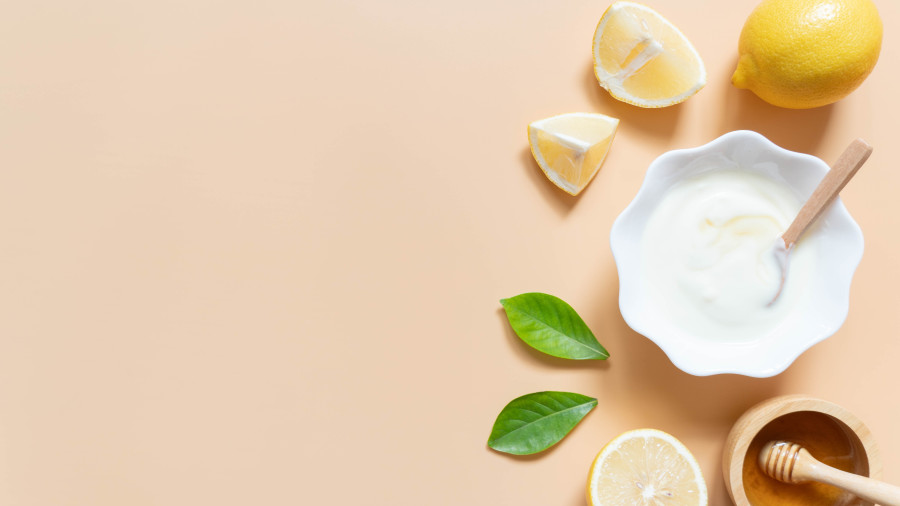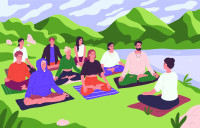Culture & Lifestyle
Dangers of DIY skin care
While some skin care influencers sing tall tales of the benefits of homemade skin care, it could do your skin more harm than good.
Samundra Gurung
Healing and alternative cures are big topics of discussion today. People want a more naturalistic approach to the things that they consume. Some people are also scared of the word “chemical” in things that they consume whether it be food or products to apply on the face and body. So, they tend to replace skin care products with natural ingredients found in the kitchen. While you will find thousands of posts and articles on the internet about natural remedies for skin, how many of these remedies have been tested and proven to be beneficial scientifically? Or are we just applying things to our skin without proper knowledge of what it does to us?
Scrubs are probably the DIY skin care item everybody makes at their homes the most. They are used for physical exfoliation to get rid of bumps and skin texture. However, scrubs are made from hard materials—like sugar, lentils, rice, etc—which when used on the face, can be irritating. Especially on acne-prone skin. It can even aggravate preexisting acne lesions. Exfoliation with such materials, if not done carefully, can also cause microabrasions leading to a weakened skin barrier making skin more prone to dry flaky patches, redness and signs of sensitivity. So it is best to use physical exfoliants on the body where the skin is more resilient. One can opt for chemical exfoliation instead of scrubs for the face using products containing Alpha, Beta hydroxy acids on a recommended strength prescribed by a dermatologist.
People frequently apply lemon juice on their faces, believing that it will provide a natural supply of Vitamin C. In theory, it does contain a high amount of Vitamin C that can help with hyperpigmentation, but it is also extremely acidic having a pH value between 2-3. This can throw off the natural pH balance of your skin and can aggravate skin problems. Its use can result in redness and dryness of the skin because of a damaged skin barrier. Side effects can be even more severe if you have sensitive skin. Not only that lemon juice can also cause phytophotodermatitis, a skin condition caused by volatile chemicals reacting with the UVA rays from the sun resulting in symptoms such as redness, discolouration, itching, blistering and crusting of the skin. Furthermore, it can make your skin more sensitive to sunlight and increase the risk of sunburn. Applying it frequently might also increase the risk of getting leucoderma or depigmentation of the skin.
Turmeric is another common ingredient used in DIY skin care. Research has shown that curcumin, the active compound of turmeric, is an antioxidant and anti-inflammatory agent. But we should always be aware of the possibility of allergy to it as well. If someone is allergic to turmeric, they might get contact dermatitis which leads to irritation, redness and swelling of the skin—not to mention its most common side-effect: it stains the face yellow.
Some individuals also apply toothpaste on acne as a spot treatment thinking it will diminish the lesion. Toothpaste contains chemicals like sodium lauryl sulfate and menthol that are quite abrasive and can cause redness, irritation and even acne breakouts.
We also make DIY skin masks and store them in the fridge for long-term use; however, because homemade masks do not contain preservatives (that prevent bacteria and fungus from contaminating the products), they can act as a medium for the growth of bacteria and fungus. When applied to the skin, they can have more harmful effects than good.
Baking soda is another common household item that people use in the name of homemade skin care. But as baking soda is alkaline, it alters the natural pH of your skin. It also renders the solution too simple to be used as a face cleanser, stripping the skin of essential oils and increasing the likelihood of breakouts.
The bottom line is, in the age of the internet there is an overload of information, and we tend to believe whatever we see or read without checking how credible the source of it is. You may be tempted to attempt DIY Skincare, but you must be wary of self-proclaimed beauty gurus who encourage you to combine substances without explaining why. Even if these materials appear to be safe, you could seriously damage your skin DIY skin care. It is fine if you want to test some things out every now and then but please only take legit advice from someone with credibility—ideally a dermatologist.




 9.68°C Kathmandu
9.68°C Kathmandu















